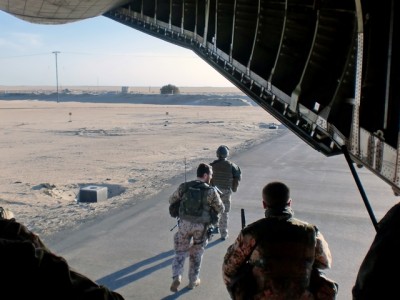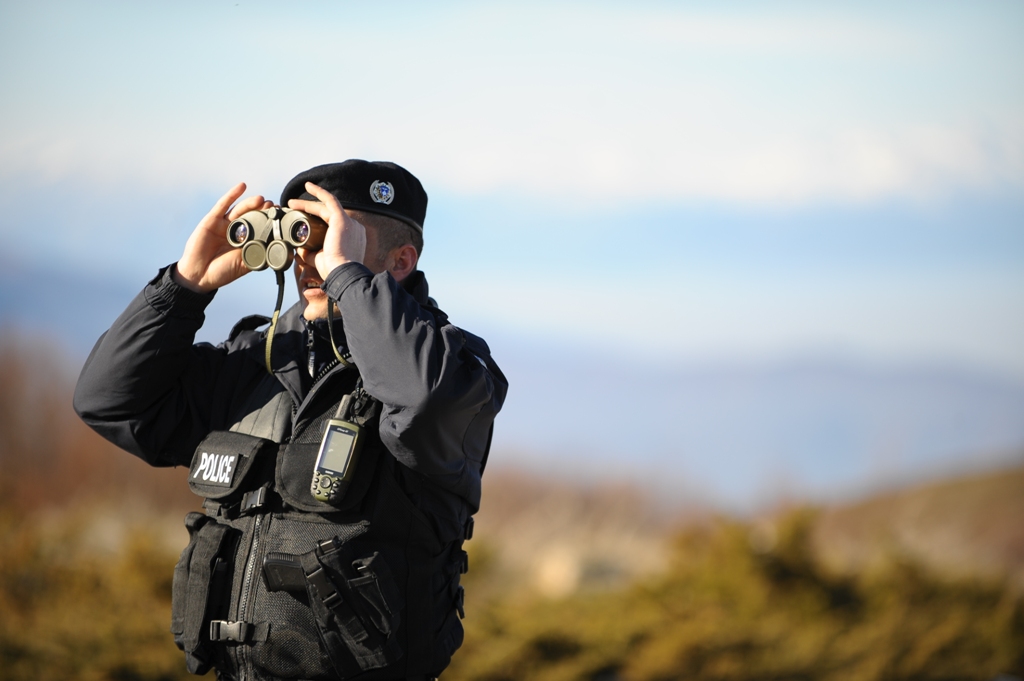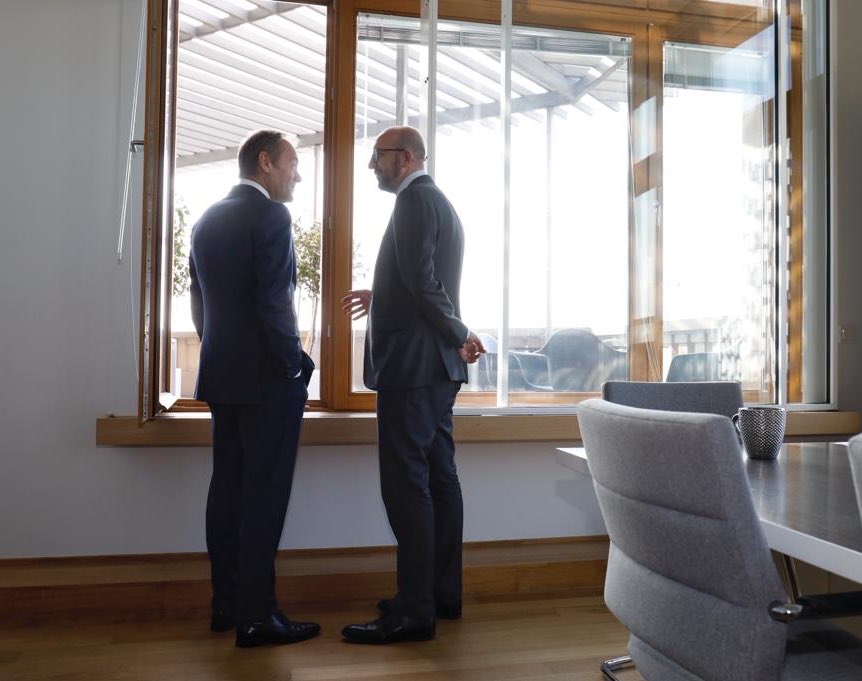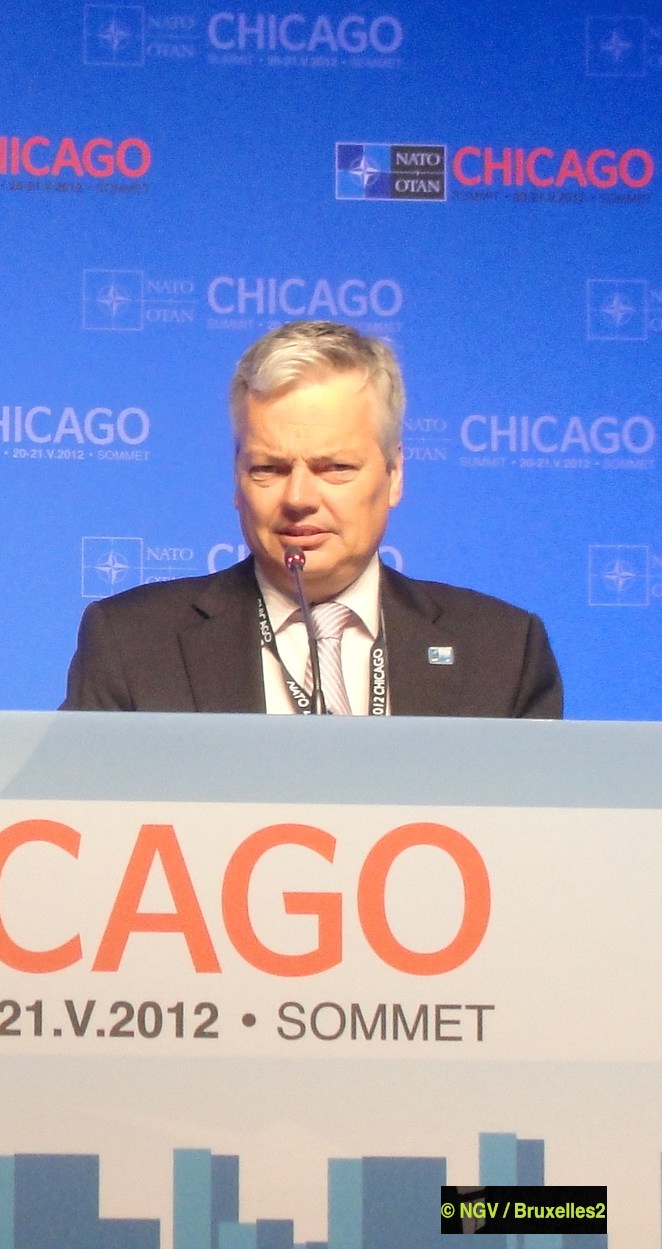Faced with the Libyan conflict, Europe is still looking for itself. Time for teacup diplomacy

(ANALYSIS) Just twenty years ago, the first Gulf War ended and the "Croatian War" began. Coincidences. On March 2, 1991, indeed, the Yugoslav federal army came to "interpose" after clashes between the Croatian and Serb security forces in Pakrac. There followed several years of carnage, where Europe did not remain powerless as has often been said, but did not know how to impose its power. Europe has learned some lessons from these events...
The EU has equipped itself with operational tools
This conflict was a trigger, a "founding" event for the European Union. Following him, several European leaders decided to equip themselves with the means, assistance and force, which they did not have then: a structured European humanitarian aid office (ECHO), a legal basis for acting with new treaties (Maastricht, Amsterdam & Lisbon), new missions (known as Petersberg: peace, interposition, etc.), doctrine and intervention plans, an embryonic military staff, a planning structure crises, a High Representative to coordinate foreign policy, battlegroups to be able to react quickly, a financial and legal instrument to allow reaction in the event of instability, special envoys, etc, etc...
Today, faced with the Libyan crisis, contrary to what some claim, there are European structures, instruments, legal bases and operational means to react. The question is therefore not really "technical" but rather political: does Europe want to use these possibilities. Are European leaders able to lead a reaction to such a crisis?

Tools that work
If we compare with the situation that prevailed ten or twenty years ago, we can immediately notice certain developments, positive achievements. On the one hand, the humanitarian tool is now fully efficient and well-honed, and works effectively. The consular protection system, triggered very quickly, was also effective, up to its discretion. Exchanges of information are facilitated today with the "Consular On Line" tool. And all the planes or boats sent on the spot to repatriate their nationals embarked, without firing a shot, the European nationals. Several forced exfiltration operations have even been carried out: by British Hercules C130s and German Transalls in the desert, by naval helicopters (with one failure, that of the Dutch from Tromp who are now hostages of the Libyans).
Another success. What used to be called "European political cooperation", in other words the political declaration machine, is working properly (even if there are still differences of opinion). There is no big hiccup on the Libyan crisis as we saw 20 years ago, when Germany and Italy recognized independence on the one hand and France and the United Kingdom refused. There was no schism like the European Union experienced during the American intervention in Iraq in 2003.
Finally, the sanctions system worked rather quickly: at the international level, and even more so at the European level. In 36 hours, the triple decision to freeze assets, freeze travel, embargo on arms was taken and 5 days later it came into force (publication in the official journal). A small record, such a decision usually takes 2 weeks says a European diplomat.
Europe in the age of teacup diplomacy
Abandoned tools
One may have the impression that Europe has "forgotten" some of its "tools" on the way. In particular, its instruments for peacekeeping, security assistance and stability. "Oblivion" is perhaps a weak word. Forgetting seems to be a voluntary act. Force is to note it. It is clear from this crisis the will of Catherine Ashton not to use the second part of her title "HR for security policy" and to confine oneself to soft diplomacy, the diplomacy of the cup of tea, the diplomacy of Dad...
A lack of anticipation of the next crisis
As events unfold on its doorstep, the EU seems to be looking for itself. We feel a certain lack of anticipation, a lack of direction even on foreseeable events for the experts in the rhythm of conflicts, who are present within the European diplomatic service.
A European Council is convened but under pressure from two States (France, United Kingdom). In extremis, a Council of Ministers of Foreign Affairs is also convened. But at a distant date (March 11). Ten days in this period where every hour counts is a century.
It was therefore fully foreseeable that refugees would arrive en masse at the neighboring borders. Since Libya has at least one million foreigners, including a small proportion of Europeans, it was foreseeable that an air and sea bridge would have to be set up to evacuate all these people. Europe could have immediately offered its logistical and air resources to Tunisia by setting up, alongside a "Pegasus" operation, intended to evacuate Europeans from Libya, a "Pegasus2" operation to evacuate non-Europeans from Tunisia. And the same problem could arise at the Niger border where the "Africans" are starting to arrive according to several reports. But the problem remains little known and evaluated. Because there is little media echo (for the moment).
A lack of planning and use of the crisis management tool (civilian/military)
In practice, according to the information that reaches us, the European diplomatic service and the European General Staff are, for the moment, not involved in the preparatory work for a possible, possible (I take all the precautions:- )) military option, nor in the sense of a United Nations resolution, and even less in the planning of a possible operation.
As Nick Clegg, the British Deputy Prime Minister (LibDem), said on a visit to the European Commission on Wednesday: “ We need to plan, anticipate, look at all possible emergency measures. This is why we are considering all measures including a “no fly zone”. (But before that), there are clearly legal issues to be resolved. "These events in the Arab world" are an exceptional opportunity to demonstrate that we can respond with all the courage and imagination that we have. Business as usual is no longer possible today »
What more can Defense Europe do?
However, the military option cannot be excluded, from the softest to the hardest: to observe the border, to impose a more drastic embargo on arms (maritime embargo), to set up a no fly zone, to intervene in interposition... Let it be understood, it is not a question of pushing at all costs towards a military option. Everything must be done to resolve this crisis peacefully. "To govern is to foresee.
The observation of the border
We must plan for the future and the worst. It is not forbidden to think that the refugees stuck on the other side of the border may be attacked or that there are various disturbances. It would not be unusual for the EU to plan to deploy a team of observers along the border (borders).
Nor would it have been unusual for the EU to send a battlegroup on the spot, for the purposes of humanitarian support to the troops already deployed. The Swedes and Finns - who make up the battlegroup - also pleaded together in Budapest last week to diversify the missions of these battlegroups towards humanitarian support.
One can therefore be surprised that the EU has not "offered its services" in this sense to the neighboring countries (Egypt, Tunisia, Niger, Algeria).
The maritime embargo and the no fly zone
This leaves an unpleasant impression. As soon as the question of a military option, of a European commitment, for example the setting up of a "No fly zone" or a maritime embargo, not to mention a forced intervention, that sounds like a "swear word".
However, there are precedents. Europe - which at the time had no instrument - had made a commitment in this direction, with the establishment of a maritime embargo in the Adriatic, in the early 1990s (joint operation WEU/NATO). Twenty years ago !
European leaders can no longer kick into the sidelines, be it C. Ashton or JM Barroso, believing one that it is NATO's job, the other that it is that of the member states. Both supported the American intervention in Iraq in 2003, even without a United Nations mandate, and never denied the usefulness of this intervention. It would be incomprehensible today when the configuration is different, when the Treaty of Lisbon entered into force with a European external action service in working order, not to use all the tools available to come to the aid of the Libyan people and put down the Gaddafi regime.
The EU has powers in this area today that it can pass over in silence. Of course, it cannot exercise them alone (with the Member States) and under the mandate of the United Nations exclusively. But she has to prepare for it. This crisis is the "crash-test" for the High Representative and her team. If she manages to mark her presence, using the full panoply of tools available, she will prove her usefulness. If she does not, the question of her replacement will inevitably come to the table.
Read also:




very good article and full of information. well done and thank you very much.
Because of this slowness in reactions, due to the fact that meetings are organized with sometimes a long delay, it might be necessary that in serious crises of this nature, the competent bodies, the UN Security Council, the Council of Foreign Affairs or other ad hoc groups of Europe, sit without interruption to be reactive during these periods of crisis. That would be a good rule.
otherwise here is an article that I put on my blog.
In Libya it is a people who revolt against a dictator for freedom and democracy.
I don't know what you can call a power that fires heavy weapons and bombards its people with its air force. I notice that the dictators who have been armed (the Western powers also live from the sale of arms) can thus prevent any revolt of the people and of course any revolution.
Libyan resistance to Gaddafi is admirable. A revolution is always a highlight, but today it is even more extraordinary because of the military and law enforcement tools that dictators possess… Dictators can destroy their country and murder their people. this is what is happening or is being prepared in Libya. But we can also remember the revolt in Burma crushed by force and arms. Should we accept that a people must commit suicide to fight for freedom of expression. What is our responsibility as arms suppliers to these dictatorships? We must be prepared to answer these questions, or else we would accept that our principle of the “right to resist oppression of our constitution” is just another violated principle. It is therefore in these cases, we, who would also make revolutions impossible.
Shouldn't we think about it??
From now on, for all the dead and wounded in Libya (while we know that there are already between 3000 and 6000 dead) that it has been proven that a leader fired a heavy weapon and used his military aviation against its people, our responsibility will be heavily engaged if we do nothing. (for our arms supplies and those of our European friends, see release article of 02/03/2011). Many actions are possible and planned, but we are taking a long time. Some seem to be falling into place slowly, as you say.
1) prevent Gaddafi's planes from flying over, force them to land or render them unusable.
2) send humanitarian aid and support, even military, without armed actions (stewardship and training of civilians) in the towns and liberated areas to prevent a return of Gaddafi's troops
3) blockade the air and put pressure on Gaddafi's hideout near Tripoli
4) block all assets immediately (France has not done this yet.)
5) launch an international indictment of Gaddafi. (a conviction will only occur in 6 months at the very least or never)
6) put pressure on neighboring countries (threats of multiple sanctions) on neighboring countries so that they prevent their nationals from becoming mercenaries in the pay of Gaddafi.
It is a people who are revolting and who risk being crushed by a madman who does not hesitate to destroy his country and his people in a bloodbath. These would therefore be interventions that cannot be assimilated to an armed or war intervention, but rather to a support action for “assistance to people in danger.”
Thank you for your attention. Bernard Ugen.